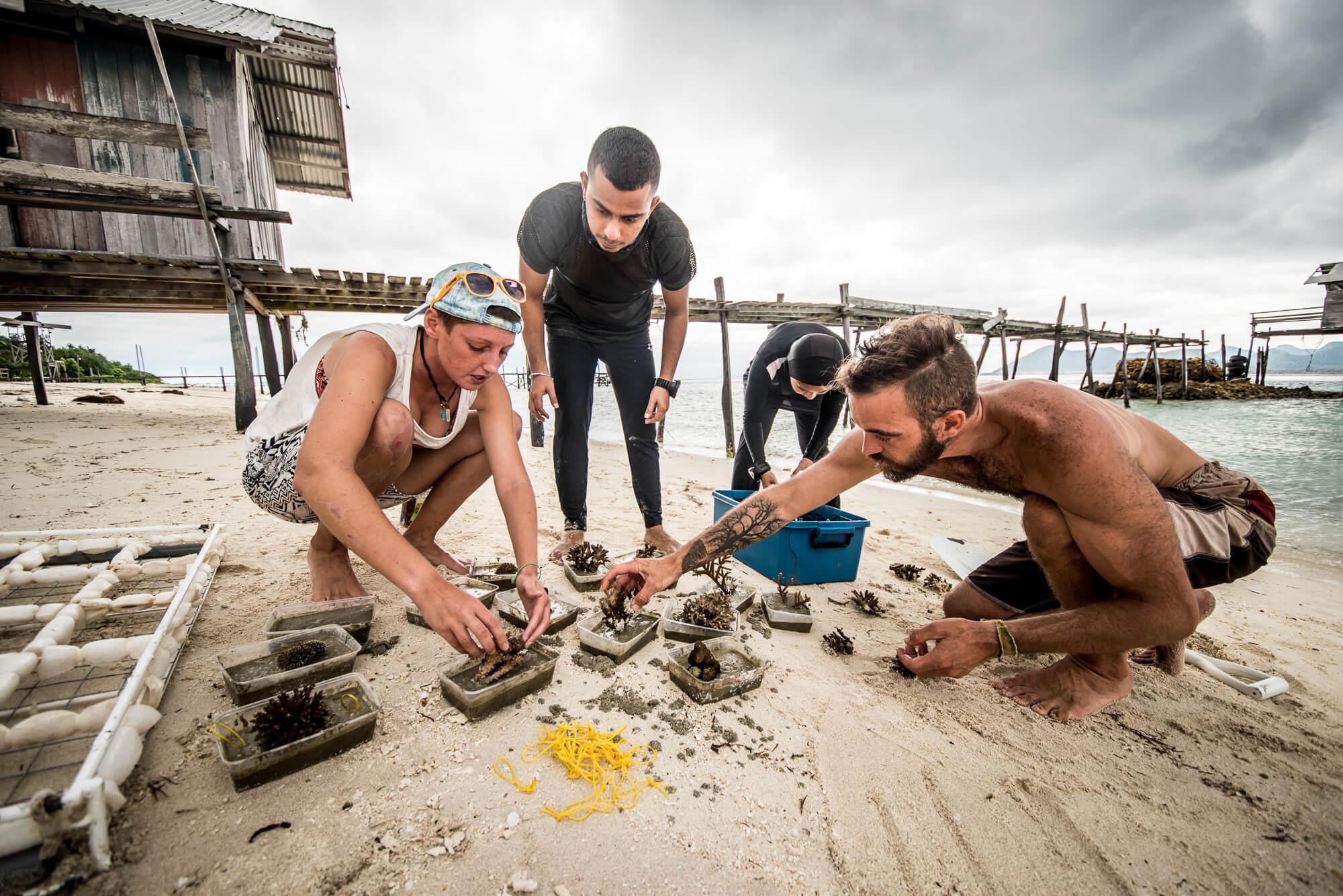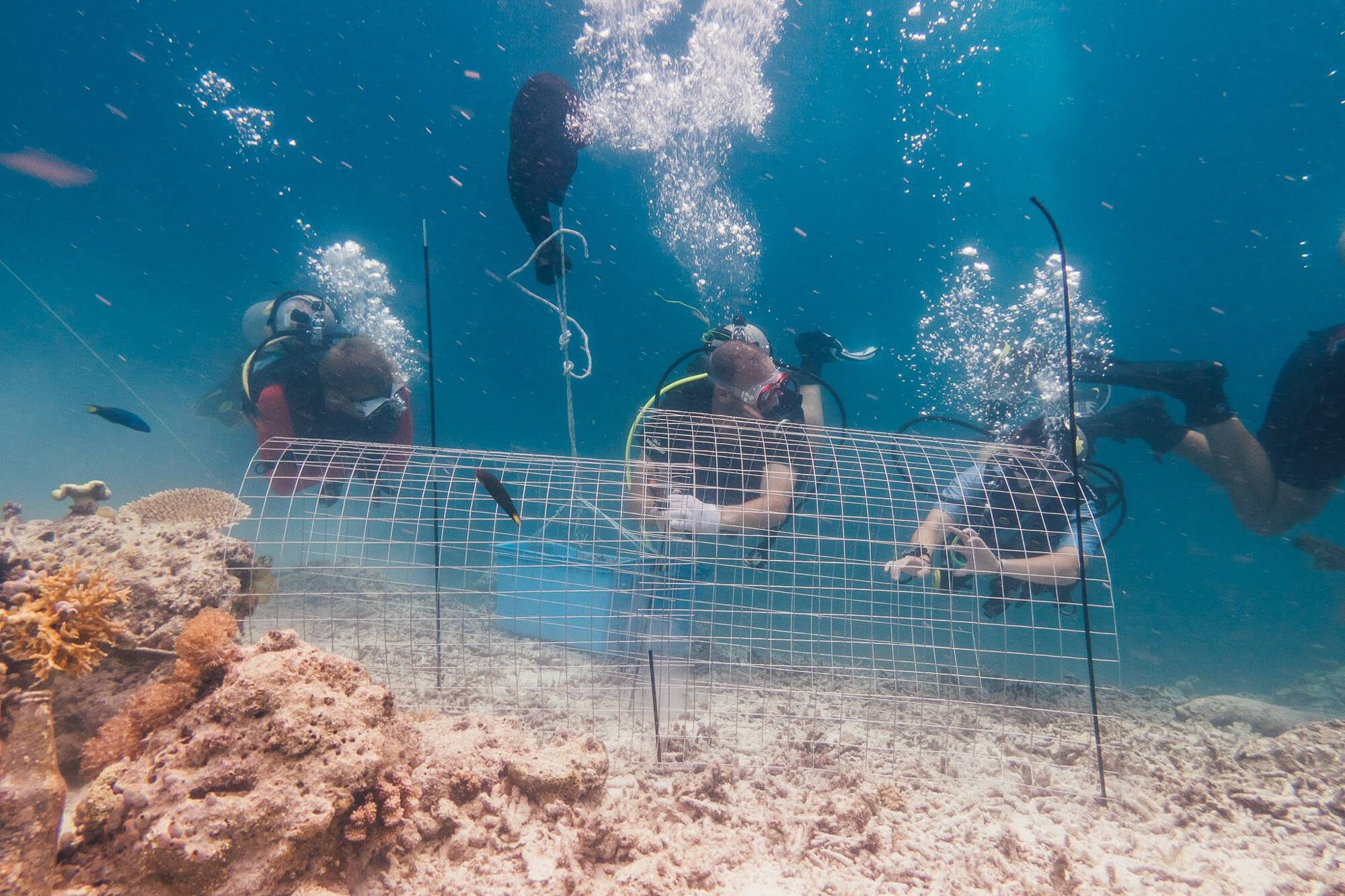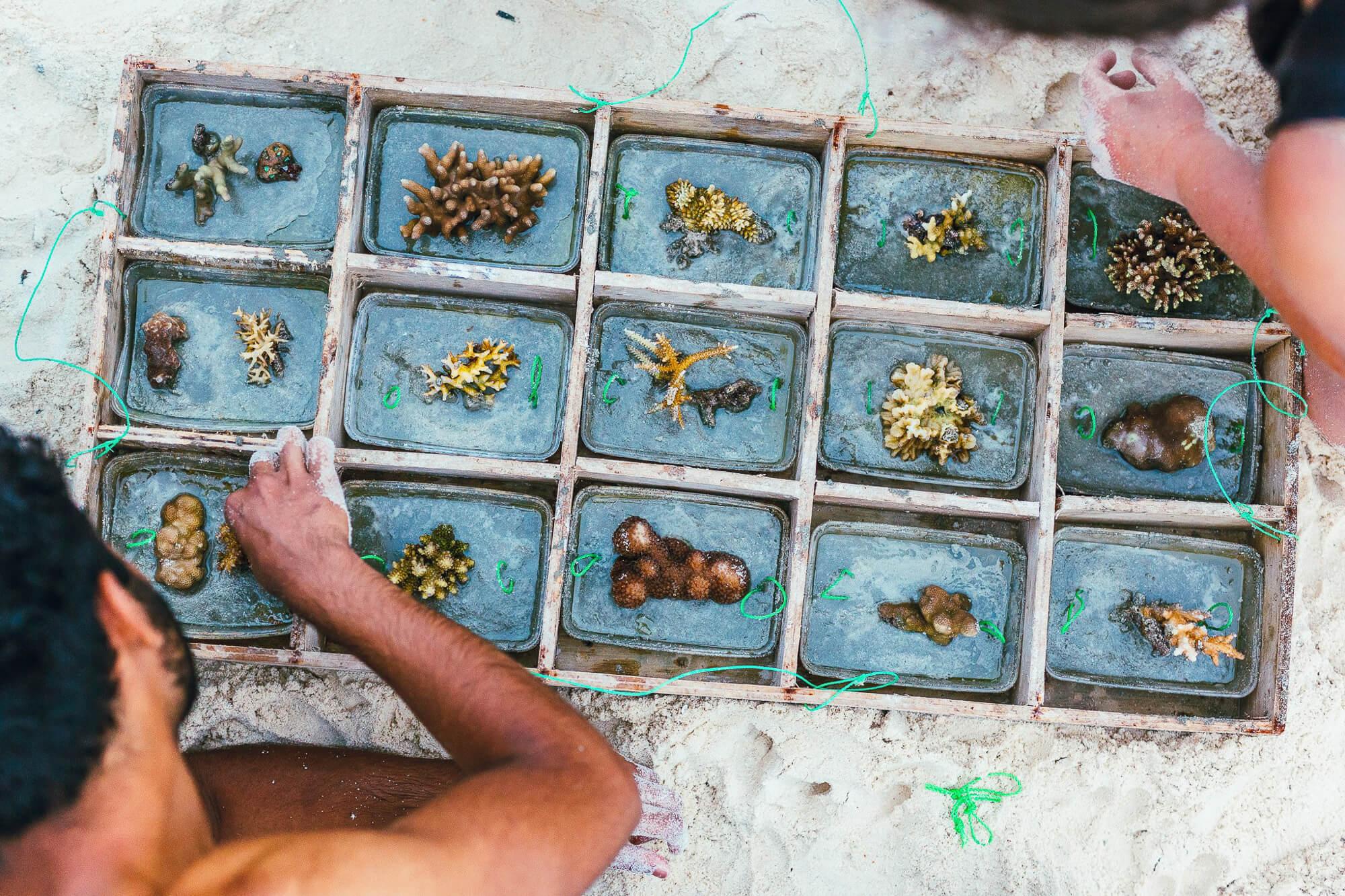TRACC focuses on coral reef restoration - in particular in areas that have been targeted by blast fishing in the past. The organisation has developed techniques to stabilise rubble slopes using step reefs, rubble cages and nets, then transplanting soft corals and sponges to hold the rubble in place. Once stabilised TRACC then transplant hard corals onto the reef and builds rubble cages along the top of the slope. All of these different techniques help to create a more stable environment, giving the corals the best chance to colonise and grow, which in turn leads to more stability, and the reef regenerates.

TRACC volunteers putting together coral 'biscuits'.
TRACC build new reefs using two unique methods - step reefs on the slopes and ribbons of bottle and concrete reefs on the reef flats. These are planted with coral ‘biscuits’ that have been grown in TRACC’s coral nursery at the northern tip of the island.
As well as developing novel reef restoration techniques, teaching, training, working with volunteers and engaging with the local community are major parts of TRACC’s work. Volunteers can join TRACC to work on the coral reef restoration project, or from May to September, join the turtle monitoring programme.
Turtles are resident all year around, but the summer months are the the main turtle nesting season and volunteers patrol the beaches at night, searching for nesting females. Once a nest is located, the eggs are then relocated to a secure hatchery. Despite protection, poaching of eggs remains a common problem but by relocating the eggs to a protected hatchery, TRACC is giving the turtles of the area the best possible chance of survival.
Tracc's hands-on approach allows enthusiastic volunteers to live on a beautiful tropical island working together with local staff to make a real difference to bring the reef, the fish and the ecosystem back - bringing scientists and divers together to tackle the challenges of reef restoration.

TRACC divers installing a new rubble cage.
TRACC also works with the local Bajau Laut community and many of their staff come from the nearby Bajau village, Kalapuan. TRACC engages with this community in many different ways, from involving the villagers directly in conservation projects and encouraging them to assist the restoration projects, to teaching the community about the importance of taking care of the environment and training staff.
TRACC also teaches ‘A’ level Marine Science courses, works with students from Malaysian universities and trains volunteers to dive.
All images courtesy of TRACC.




